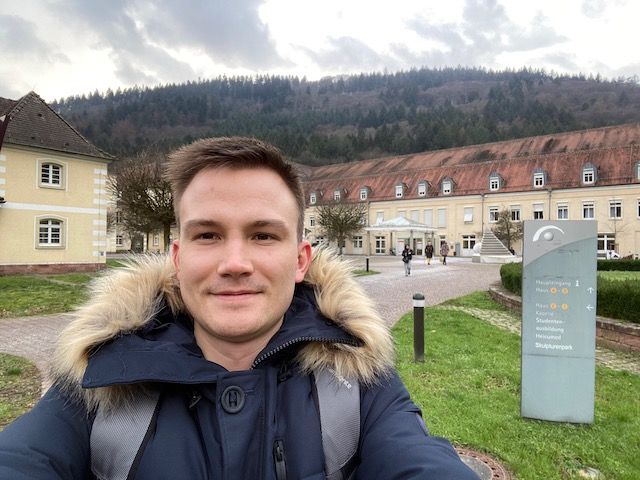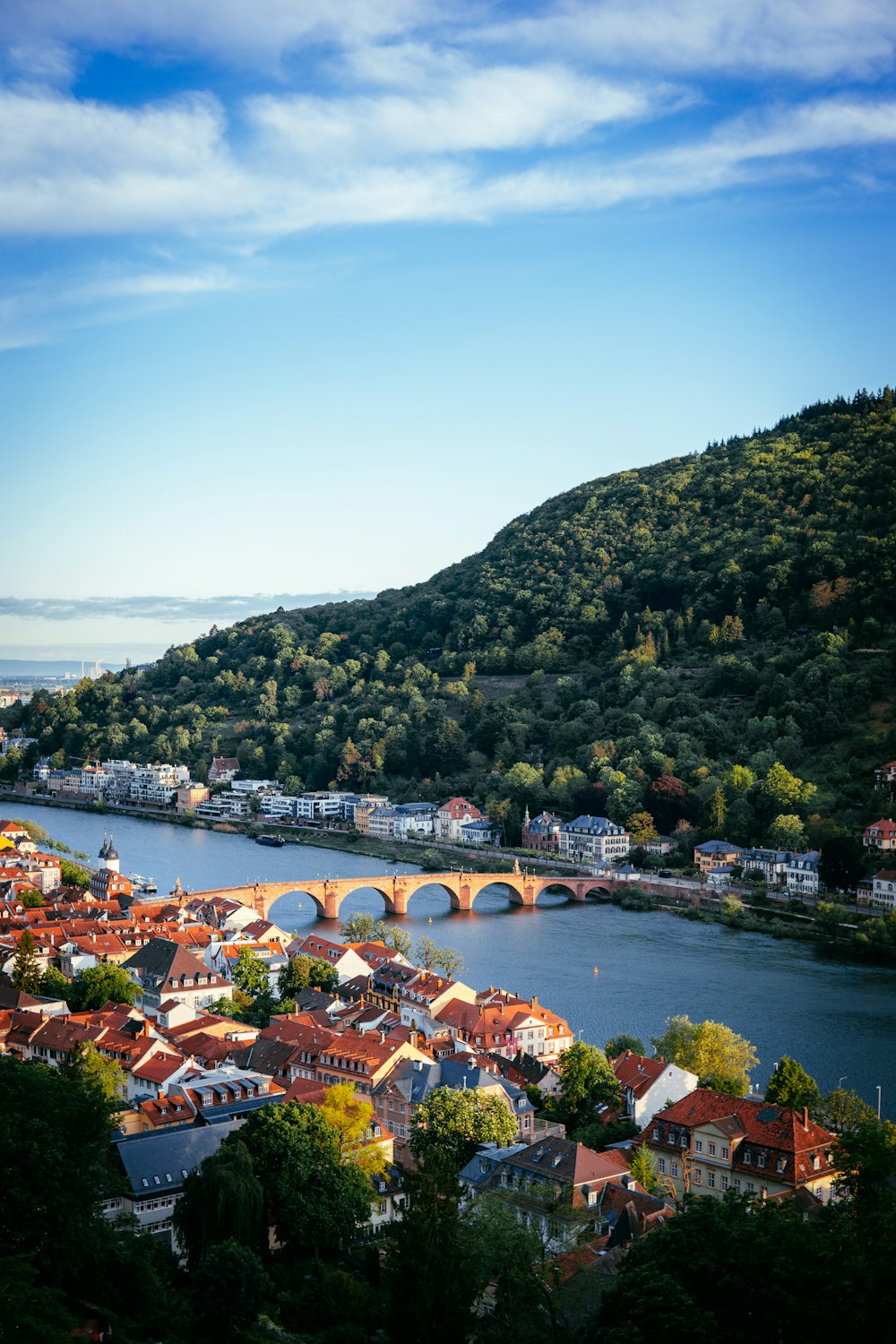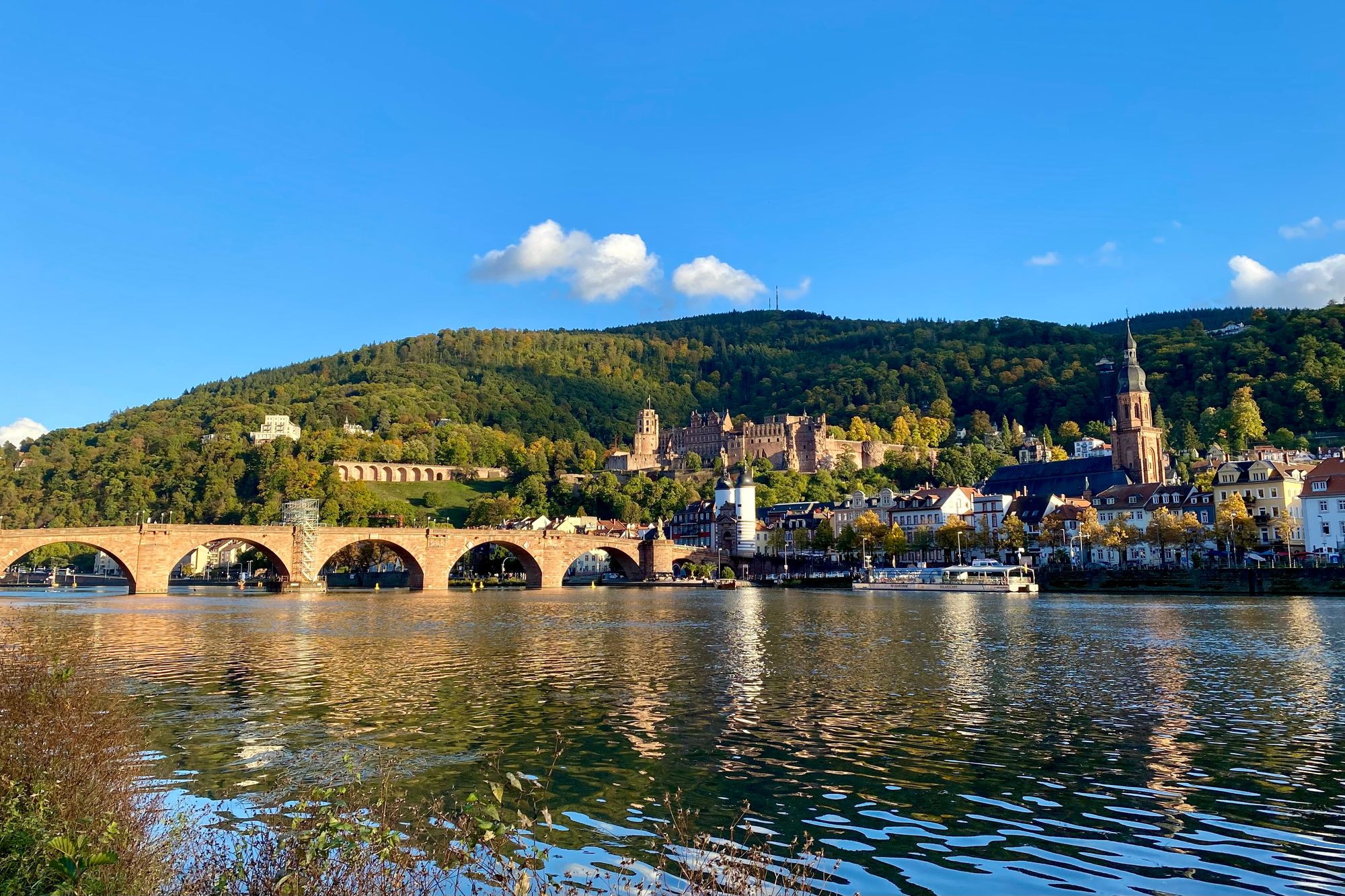Getting out of my comfort zone
I forgot about my comfort zone during the last few years of studying in Slovenia because I was living in one. Quite early on in my medical school journey, the COVID-19 pandemic hit. In my opinion, this made studying medicine much more pleasant and comfortable. Sleeping more, eating better quality food and not losing time with commuting are just a few benefits. The biggest downside was the lack of clinical practices. However, because it was more pleasant, the comfort zone became more comfortable.
This all changed by going to Heidelberg. Suddenly, I was by myself. To me, it wasn’t a problem, but it was drastically different from during the pandemic. If I wanted to eat, I either had to shop and cook or go to the mensa. If I wanted clean clothes, I had to do the laundry. And the lectures were in German. No Slovenian or English, nor online.
I don’t mean this negatively. Quite the contrary. My lectures were 5 minutes away from my dorm room, by foot. The supermarket, another 5. I had a spacious room with a small kitchen, which did the job well enough. It’s near impossible to have the same situation in Ljubljana.
Orthopedics and ENT
After the Christmas holidays, I decided to make the best use of my time in Heidelberg and do a “Famulatur” (a form of clinical elective German students can do during their studies). Two weeks of orthopedics and ENT each. If going to Germany to study medicine was out of my comfort zone, this was something entirely different. Now I had to communicate in German to doctors and patients, all day, every day.
I still think it was the best decision I made on the exchange. It was one of the first times I’ve been in an operating room. Not to mention the first time I was scrubbed-in and standing at the table, beside the surgeon. In Germany.
I thought my inexperience could be a problem. During the first week of orthopedics, I only got to observe the surgeries and do ward rounds. But when I came to the hospital at the start of the second week, I had to scrub in. I was scheduled to be there. To my surprise, the two surgeons were very cool about it. “Listen to us, don’t do any quick movements, and you’ll be fine”. And it wasn’t just fine, it was brilliant. So, the first time at the surgical table was a successful total hip replacement.
But the highlight came on my last day, before the start of the last surgery at the orthopedic clinic. Just before the “Schnitt” (cut), when the head surgeon usually says who is operating, he goes: “… Innmann, Krepulat…und Verbič.” That was a pretty pleasant feeling. I’m surprised how accepting they were of me as a (foreign) student.

Two weeks of ENT followed the orthopedics elective, which effectively were the last two weeks of my exchange. From a professional standpoint, I liked ENT better. It’s a lot more diverse than orthopedics, which means it’s not just surgery. But when it is, it’s more delicate.
The positive experience was also caused by the doctors being a little more forgiving. I was able to assist from the first day on and allowed to suture skin here and there. But I have to admit, I felt slightly better accepted in the orthopedics clinic.
Looking at Slovenia with different eyes
Apart from experiencing orthopedics and ENT, it was also great to see the German healthcare system in action. In my eyes, the organization at the orthopedic clinic was top-notch. Usually, it seemed almost like every minute of the day was used.
On the other hand, I also got to observe the relationships between staff and how they’re organized. It was brilliant to see a team of very different people working together. Sometimes even of different nationalities. The most interesting thing I noticed was that they were all friends. No matter their background, education or training, they were friends, but still respected one another based on their position.
This all gave me a different outlook on my home university and the healthcare system, as well as the life we have at home. The most important thing was to see that it is possible to have a well-working healthcare system.
On the other hand, Slovenia has its advantages. The weather is much nicer, the food better, and one can actually pay with a credit card in most places. Moreover, everything is closer. I didn’t fully realize how big Germany is until I wanted to get to Cologne for a Eurobasket game. In Slovenia, you can decide to drive to the seaside and be there in 1 hour. If you’re in Heidelberg, you’d probably need about 8.
Friends from around the world
As I was leaving Heidelberg, I felt happy because I proved to myself that I can successfully function in a different (foreign, German) environment. It was also great to finally get to sleep in my bed, see my friends and be with my family again.
At the same time, I also felt sad. I made some excellent friends from all around the world. I had a fantastic time both at and away from school. Now I have friends from Lyon, London, Zürich, or Kentucky of all places, which is always helpful.
It was also striking to see how we all thought alike. In hindsight, it makes sense, as we were all in a similar situation. I didn’t think about this before I went there, but noticed very early on.
What’s next?
With that, I also conclude this “miniseries” of Erasmus reflections. This was also the one and only Erasmus study exchange I’ll be able to attend. However, this doesn’t mean I’ll never experience medicine in a different country again. At the end of June, my next stop is Austria.



